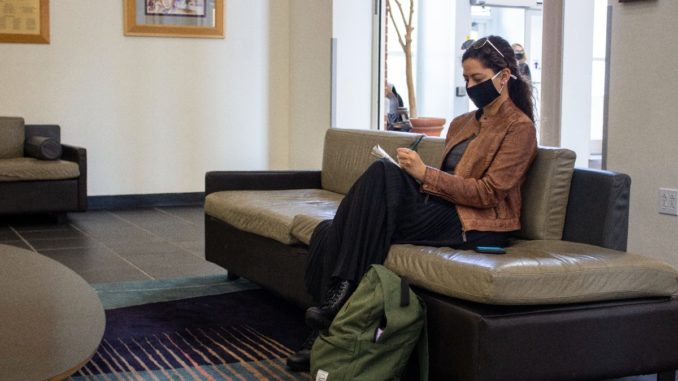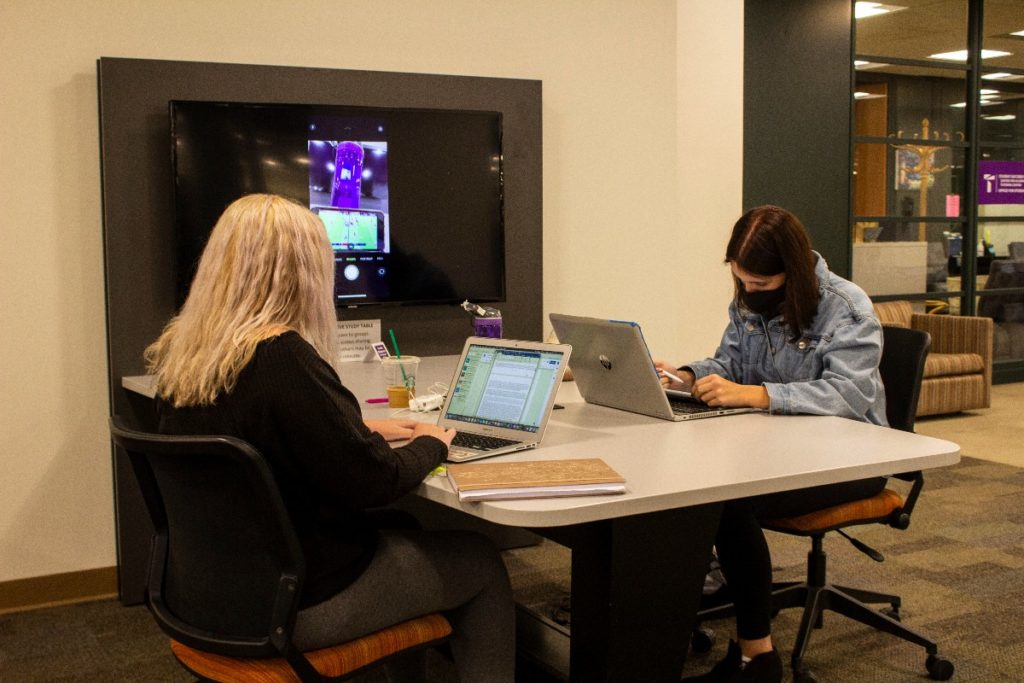
Truman State University has established plans to help prevent the spread of COVID-19 to keep students and faculty safe for the fall semester and still ensure effective learning and teaching experiences.
The University laid out the faculty and staff guidelines to follow throughout the fall semester while in campus buildings. Sodexo established policy for students and workers in the dining halls, and the Faculty Senate worked with Student Government over the summer to establish how classes will function during the COVID-19 pandemic and expectations for professors.
“We’re kind of operating under the assumption that our students are caring students and care about the Truman community and want to protect the Truman community and they want to protect their ability to complete the semester,” Brenda Higgins, associate vice president of student health and wellness, said.
Higgins listed health policies, including wearing a mask when in public or when unable to social distance, avoiding large gatherings and frequently washing hands.
When students might be disregarding the guidelines put forth by the University, there are people on staff who will attempt to remind the students to follow them.
“For example, if students are sitting closely together or eating in the SUB, somebody from Student Affairs may just walk through and remind them to distance,” Higgins said.
Rather than harsher fines and punishments such as suspensions for failure to abide by the guidelines, the University has resorted to words of encouragement and reminders. According to Higgins, encouragement and reminders seem to be effective right now.

Students also receive messages through email in regards to COVID-19. Higgins referred to an email that covered testing and included reminders at the end for students to social distance and to wash their hands frequently.
Sodexo General Manager John Stewart listed the food service group’s dining halls’ policies on campus, including replacing self-serving stations, placing barriers between students and offering to-go boxes.
“We block that first half-hour of lunch and dinner, strictly for carryout only,” Stewart said. “That way anyone that doesn’t feel comfortable waiting around in the general population has an opportunity to get in and out before it starts filling up.”
Policies have also been put in place for the classroom to help keep both faculty and students safe during in-class meetings, including mask-wearing and updated attendance policies.
Truman requires masks in the classroom, and it is up to the professor to help make sure students are following the guidelines in their classrooms. However, this policy presents a few issues for some professors.
“Lots of us don’t have a background in public health or how to educate on this sort of thing,” Faculty Senate President Scott Alberts said. “Or even is it our job to do so, and of course, the answer kind of is yes.”
Alberts said Truman asked professors to approach the situation with a positive and educational perspective and potentially use the situation to create a second-degree teaching moment. This is to avoid any sort of escalation of the situation and keep a fun and educational atmosphere in the classroom.
The University also updated attendance policies for the semester. Students cannot be forced to attend class in person and if an event should be deemed “mandatory,” according to Alberts, there needs to be a virtual alternative.
Alberts discussed one class he teaches for which a group of students had yet to physically attend class due to being in quarantine. This created a situation where, during discussions, the students who were on Zoom would have a separate discussion while those in person would have their own.
“That’s the kind of stuff that if you don’t think about it intentionally then it can really catch you off guard,” Alberts said. “And you know we are really thoughtful about how we design our classes, you know we’re kind of good at this … but this is a totally different thing.”
According to Alberts, professors are expected to have lectures and lessons planned ahead of time if they should fall ill during the semester. Along with this, professors need to have a backup professor should they be unable to teach during their isolation.
Faculty and professors alike have been racking their brains over the summer to find a plan that keeps themselves and students safe but also still trying to reach their learning objectives, Alberts explained.
“Just the idea that we’re thinking about it, that’s really what we’re trying to make sure we do,” Alberts said. “We all have a plan.”
